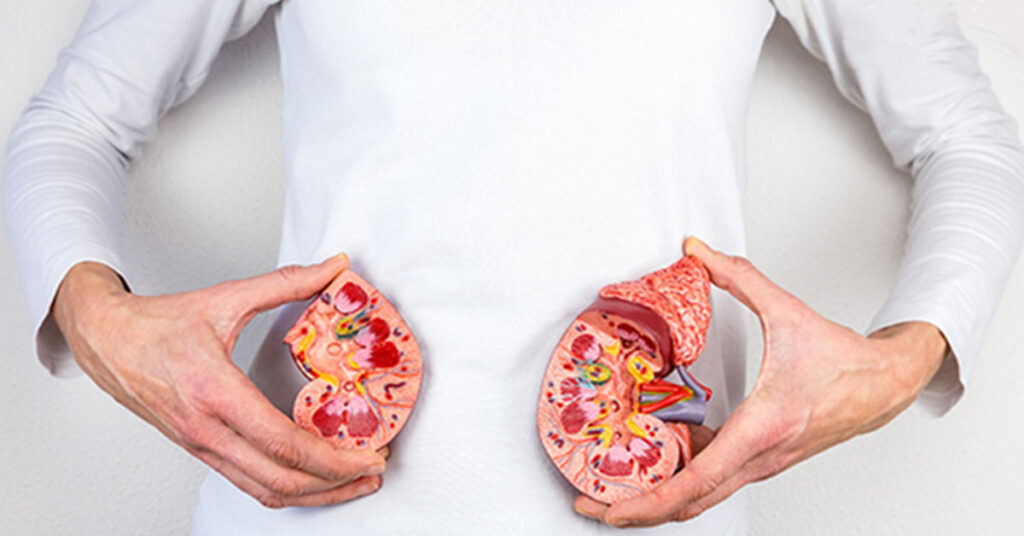Kidney stones are somewhat the stuff of legend when it comes to health maladies. If you’ve had them, you know all about the massive, excruciating and molasses-slow pain of passing them, according to rumor. If you haven’t had them, you’ve heard the horror stories.
But what’s the real deal about kidney stones? In this article you’ll find out the facts.

Table of Contents
What Are Kidney Stones?
According to Harvard Health, kidney stones take shape when calcium and other matters found in the kidneys become compacted, forming crystals that get big enough to be referred to as “stones.”
The kidney stones can detach from the organs themselves and travel down the ureter, not to be confused with urethra. The ureter is the pipe through which urine travels to the bladder from the kidneys, whereas the urethra is the tube urine flows through and exits the body.
When they start to travel down the ureter, kidney stones block natural urine flow, causing serious pain in the abdominal region, as well as the constant urge to urinate, pressure on the bladder, or groin pain.
Kidney stones usually pass without the need for surgery, but they take their time doing it. Passing kidney or uric acid stones, which are similar to kidney stones, can take weeks or even months to completely pass. It’s not a pretty picture.
Are there Natural Remedies?
According to a study performed at the University of Wuhan, China and published by the National Institute of Health’s U.S. National Library of Medicine, you can help prevent kidney stones by drinking more water, tea and even alcohol in moderation.
Here are some foods to pass on (pun intended!):
- Almonds
- Spinach
- Beets
- Beans
Though healthy foods, all of the above foods contain high levels of oxalate, a composite that can increase your risk of developing kidney stones and being forced to attempt passing them without surgery, as oxalate eventually exits the body via the excretory system.
Try these low-oxalate foods instead:
- White rice
- Dairy products
- Fruit
- Apples
- Cherries
- Grapes
- Nectarines
- Watermelon
- Raisons
- Lemons
- Vegetables
- Artichokes
- Broccoli
- Zucchini
- Peas
- Brussel sprouts
- Chocolate
- Meat
- Eggs
- Pasta
Harvard Health urges those who are worried about developing kidney stones or are already faced with the prospect of having to try to pass one successfully, i.e. without surgery, to avoid salt and foods based on animal protein such as seafood, which raises your uric acid levels.
The Final Word on Kidney Stones
Only 9% of United States citizens are at risk for developing kidney stones, noted another Harvard Health article. So the chances you will develop them in your lifetime are relatively low. But that doesn’t mean it’s not a great choice to make to look after your health in ways that prevent them.
Keeping hydrated and choosing the right diet are huge steps forward for your personal health—and away from the dreaded health malady of kidney stones.
